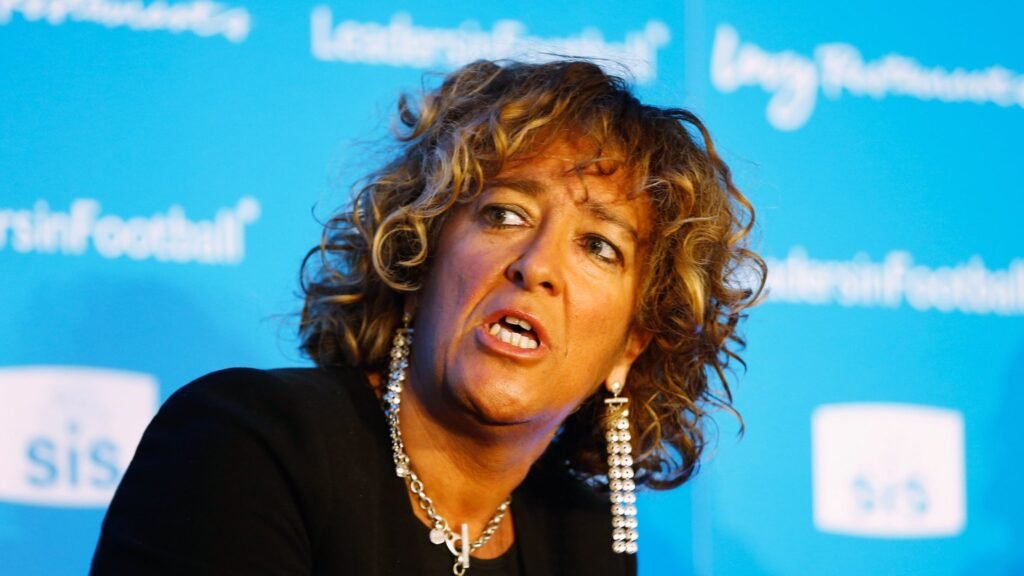The Creative Industries Independent Standards Authority (Ciisa), a new watchdog set to launch next year, aims to address issues of abuse, bullying, and harassment in the TV, film, music, and theatre sectors. The organisation seeks to create a safer environment for workers in these industries, which have long been plagued by systemic misconduct.
Ciisa’s founder, Dame Heather Rabbatts, expressed her satisfaction with the support received from major industry players like broadcasters, producers, and record labels. The call for funding in June was backed by prominent figures such as Keira Knightley and Cara Delevingne. However, concerns remain about whether Ciisa will have sufficient powers and capacity to deal with the extensive problems it is expected to face.
Dame Heather, who also founded Time’s Up UK in 2018, highlighted that many victims of bullying and harassment had nowhere to turn for help. Ciisa’s creation follows years of campaigning for better protection in the creative industries, including efforts by former X Factor singer Rebecca Ferguson, who has spoken out about exploitation and bullying in the music business.
The creative industries, known for their reliance on freelancers and high levels of power imbalance, have been particularly vulnerable to misconduct. “It’s often powerful people taking advantage of quite vulnerable individuals who don’t have employment protection,” Dame Heather explained. The precarious nature of freelance work makes it even more challenging for victims to seek support or report abuse.
Ciisa’s interim CEO, Jen Smith, noted the lack of independent, confidential support available for workers in the creative sectors, especially given that 70% of the community is freelance. Ciisa aims to fill this gap by providing advice, dispute resolution, and mediation. It will also assist with taking matters to the police if necessary and may conduct its own investigations when required.
The watchdog’s scope will cover both behind-the-scenes workers and high-profile cases, such as recent bullying allegations on Strictly Come Dancing. Smith emphasized that Ciisa’s role would be to add value to the sector by addressing such concerns.
A recent survey by the trade union Bectu revealed that 92% of creative workers had witnessed or experienced workplace bullying or harassment, with 20% reporting serious sexual assault. Additionally, a House of Commons Women and Equalities Committee report found that the music industry remains a “boys’ club” where sexual harassment is common, perpetuated by a “culture of silence.”
Alexa Morden, host of The 98% podcast, which discusses the realities of acting life, underscored the widespread nature of abuse in the industry. Morden described the stories shared on her platform as “abhorrent” but “sadly not that shocking anymore.” She believes Ciisa is essential to implementing proper regulation and safeguarding in the creative industries but warns that the organisation will face resistance from those who have benefited from exploitation.
Ciisa’s newly appointed chair, Baroness Helena Kennedy KC, will oversee the body as it prepares to tackle these issues. However, the authority’s powers will be limited, as it operates as a voluntary regulator. While it has the support of the industry and the government, Ciisa will not have the ability to impose financial, disciplinary, or criminal sanctions. Instead, it will make recommendations aimed at fostering improvement and accountability.
The House of Commons Women and Equalities Committee welcomed Ciisa’s creation but warned that it is “not a panacea for all of the problems in the industry” and questioned whether it would have the power needed to bring about meaningful change.
Ciisa is currently preparing for a potential influx of reports when it launches, as it expects to uncover a much larger scale of misconduct than what has previously been reported. Smith reassured that the organisation is doing its due diligence to ensure it is equipped to handle the expected volume of complaints and provide the necessary support to those affected.
As the creative industries continue to grapple with longstanding issues of abuse and harassment, Ciisa’s launch represents a significant step toward addressing these challenges. Whether it can effect real change will depend on its ability to navigate the entrenched power dynamics and deeply ingrained culture of fear within the sector.
Also read: Olivia Munn And John Mulaney Welcome Second Baby
